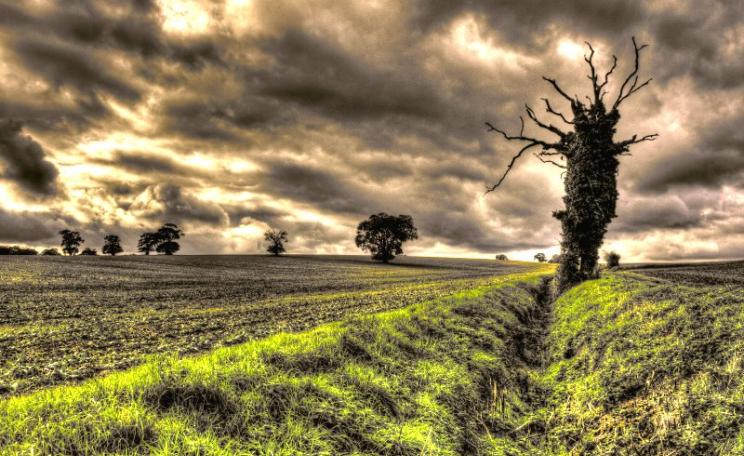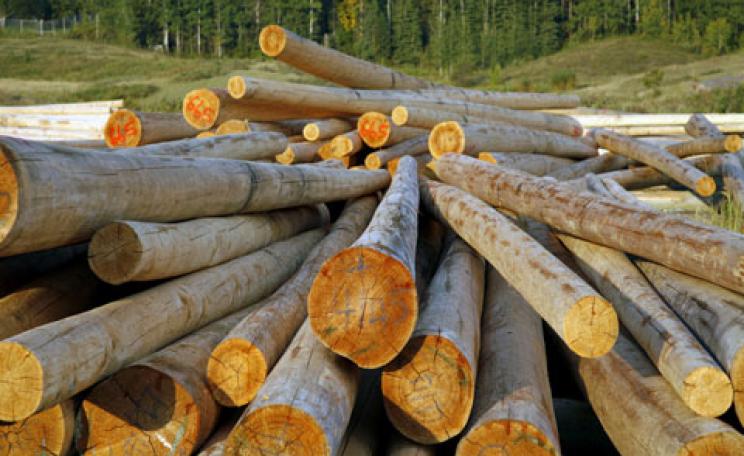The Government has decided to set the threshold at the highest possible level of five hectares because the vast majority of those claimants with less than 5 hectares are not economic units. They are, in lay parlance, hobby farms.
As a young farmer born-and-bred in Devon I travelled to London yesterday to protest, along with nearly 100 other small-scale farmers, at the way government policy increasingly promotes intensification - while at the same time marginalizing small-scale producers.
This country, and the West Country in particular, has a long tradition of successful small to medium scale mixed farms where livestock are raised alongside crops and the waste from one enterprise - muck or straw - is recycled on the farm to create a resilient self-sufficient business.
But over the past fifty years or so there has been a steady drive towards what this government now calls "sustainable intensification". What this means in real terms is reducing food from a valued cultural asset to nothing more than a commodity - like steel, shoes or computers.
Current policy is obsessed with cutting costs - and quality
As a result we now have an agricultural sector in the UK that is obsessed with cutting costs and getting the lowest quality produce to consumers at the lowest possible price.
The BSE crisis of the 1990's, Foot & Mouth in 2001 and more recently the horse-meat scandal are all testament to the fact that this type of "intensification" is not viable, let alone "sustainable".
At the other end of the spectrum our job as small-scale producers is made harder by having to compete on price with large-scale UK farms that are subsidized to farm in an inefficient manner.
For years the Common Agricultural Policy has been criticized for channeling vast sums of public money to landowners, with little or no public good in return.
Here in the UK we have the most disproportionate distribution of CAP funds in Europe with 80% of our annual £3.6bn CAP budget being awarded to the largest 20% of our landed gentry.
Reforming the CAP - to cut support from the smallest farmers
Under the most recent round of CAP reforms in 2013 Member States were given the option to address this inequality through a combination of measures.
These notably included a cap on individual payments of over €150,000 and the introduction of a "small farmers' premium" to recognize and support the role of smaller-scale producers in contributing to national food security.
Members were also for the first time given the option to raise the minimum area that can be claimed for under the CAP from one hectare up to a maximum of five.
Here in the UK our environment minister Owen Paterson was quick to set out his stall announcing, in contrast to the majority of EU Members, that we would "apply the minimum reduction on basic payments over €150,000".
Over 16,000 small holdings will be excluded
Commenting on the minimum claim area the minister continued: "The Government has decided to set the threshold at the highest possible level of five hectares because the vast majority of those claimants with less than 5 hectares are not economic units. They are, in lay parlance, hobby farms."
According to Defra's figures the new threshold will exclude 16,650 holdings across England alone from claiming the single farm payment in 2014. Many of those holdings may indeed be hobby farms where a £1,200 subsidy is keeping a flock of rare breed sheep in livery.
On the other hand many of those holdings will be home to producers who have made a conscious decision to stay small and supply locally and for whom £1,200 a year is the difference between breaking even and going under.
Owen Paterson's loyalties lie firmly with the one percent
Since taking office in 2012 Owen Paterson has made no mistake about where his loyalties lie. This latest example is simply another, albeit audacious, display of his bias towards agribusiness and the landed gentry.
In reality the policy will only make it harder for legitimate small-scale producers to survive in the face of subsidized competition while redistributing ever more public money to the one percent.
Ed Hamer is a community-supported farmer at Chagford, Devon, where he founded Chagfood to supply fresh, local produce to local people. He is also an editor of The Land magazine.
Link: Land Workers Alliance.







